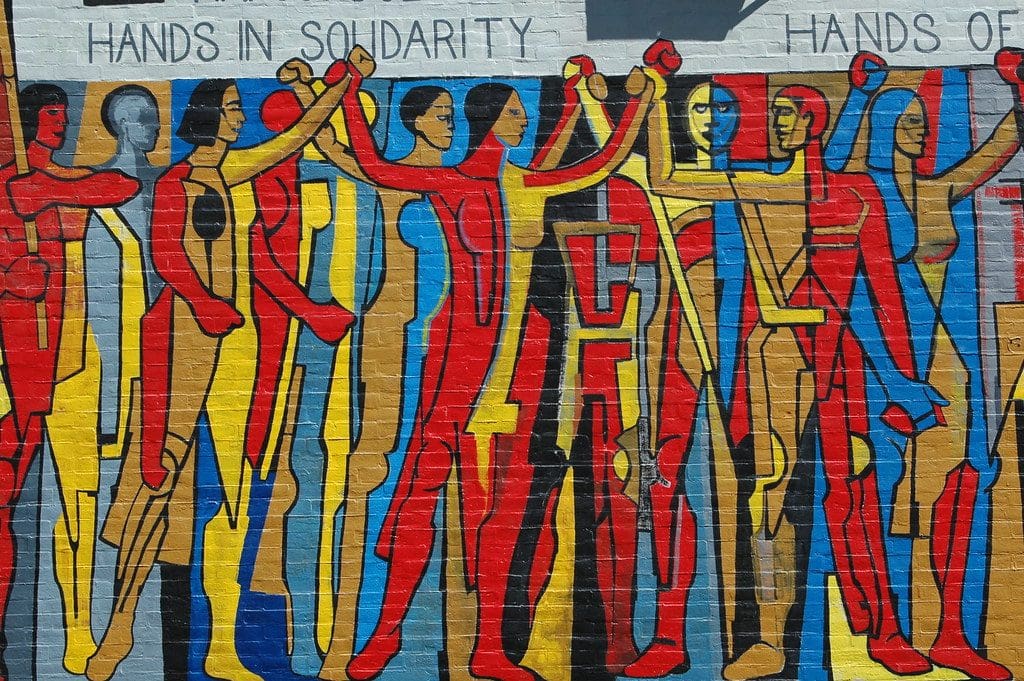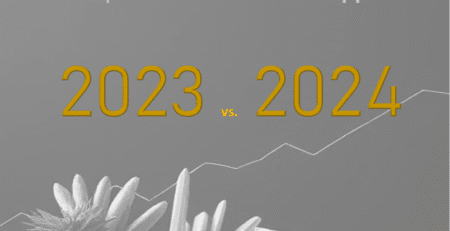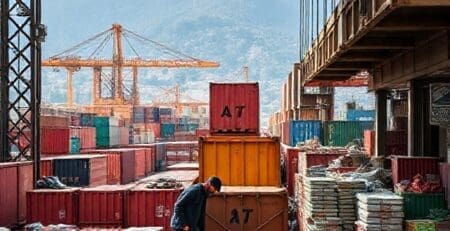To avoid social degradation…
Relationships in the economy and our daily lives are becoming even more complex, as unprecedented long-term challenges are emerging, such as rising inequality, escalating political bias and instability, autocracy, social exclusion, and a non-visionary policy of using the growing innovative technology in the public sector while not stimulating the private sector to increase investments in digitalization, as an existentialist positioning of the governance model.
If we can analyze what should be encouraged in the private sector to move with safer steps for the future of the most vital and basic sectors of the economy it is more related to the promotion of competitive trends not only digital ones, which are being stimulated in all neighboring economies with Albania, especially in those that are part of the “Open Balkans” political initiative.
Currently, in addition to the long-term need to encourage investment in technology and services based on them, everything must be done to meet current demands and guarantee the basic needs of citizens and businesses.
Why?
Because, first daily needs must be met first and in this time the market has dictated the return to basic needs.
Turnover and import data for the first quarter of 2022 are likely to continue to fall. Albania is already expected to have less performance on the import side, due to the impact on consumption from rising prices at historical rates, but also with a low level in the incomes of the most vital part of consumers.
Meanwhile, from the risk of forced government intervention in business decision-making, there will be a growing inequality in the development of regional economic potentials, making the poorer regions even more dependent on large corporations and oligopolies, which had considerable government assistance to minimize their costs from price increases.
All this moment means that on the one hand, the citizens are putting increasing pressure on guaranteeing daily products and services at reduced costs, but also on increasing social assistance on a continuous basis. On the other hand, businesses are putting pressure on them to facilitate the guarantee of low costs for business continuity, which are intertwined with the implementation of fair policies for not restricting market freedom and not increasing the burden of obligations, which the government collects with taxes and other tariff obligations.
Given this policy that has created a growing level of doubt about the government’s willingness to deliver on the promises it has made in its governing program, it is worthwhile to start and not close a multi-level dialogue and transparency, higher than before in terms of what strengthens the economy and enhances the values of society now.
Thus, e.g. The funds that are expected to enter our economy from the implementation of the Economic and Intensive Plan for the Western Balkans, where Albania is expected to benefit mainly in the years coinciding with the government “Rama 3” should not be used for daily policy making, but for social unification.
These opportunities should be the axis of development that can turn a substantial part of the economy towards a development above current expectation. But the other impact from this economic and social union around the investments brings a balance through the redistribution of income between businesses, regions, individuals, genders and harmonized ages.[1] These investments can increase the geo-economic position of the country, already reduced for decades.
Politically, many things are in irreversible change. The initiated structural and economic reforms, which seem to be following, are in fact being implemented with a great political and budgetary strain, which does not seem to follow the logic of sustainable development of the country for years, but it has also increased the well-being of its citizens by small steps.
Changes in the performance of the economy, which the government “Rama 2” and “Rama 3” has imposed despite the resistance of civil society and business organizations can cause effects with greater distortive proportions, reinforcing the negative dynamics of pre-existing years before the process of purging justice from the corrupt began. It may seem that the government has taken steps to develop a stronger and more uncorrupted administration than before, but in fact the costs of increasing the digital capacity of the administration have been sufficient only with investments much larger than the capacity fiscal and human resources to recover benefits as declared by society and the economy.
In the foreground, the initiative is effective as it has reduced a tendency for corruption in the lower and middle levels of state administration. But the biggest problem for the high level of corruption is not the low levels employees, but the heads of institutions that carry out dubious transactions and agreements, that go beyond the contours of daily services and have nothing to do with the perception of service at the counters.
Thus, e.g., although digital services have been used for many years in public procurement, the level of corruption has not decreased as it is not “served” mainly at service counters, but in secret agreements of corrupted government segments to share the economy and public goods in favor and function of a grouping of human beings that also serve as masks of corruption of political will.
Although we live in an unclear political and economic time, public pressure must be directed to orient the political will according to the spirit of the citizens’ reaction, not only to corruption. It is a consequence and appears to be related to the capture of the state, the weakening of the fight against organized crime, the restriction of media freedom. Above all, political corruption is seen in inequality in the fair redistribution of income by changing the fiscal burden that currently affects the average citizen and those below and facilitating the wealthy and the informal who operate largely with the funds generated by corruption. state capture and organized crime.
If the above indicators, which are the result of a lack of political will, remain the same or worsen, then the government’s structural initiatives to rid itself of corruption are an illusion, as they produce elements of even greater instability and distortion for citizens’ hope, that things can change for the better.
The most effective way to avoid social degradation, which has eroded the values of society all these years with a direct effect on weakening the political-economic position of the country in the region is through building an inclusive society that offers equal opportunities for its members, and minimizes inequalities between individuals. Building such a society requires encouragement and support not only from the government but also from various elements of the community, including citizens and businesses.




Leave a Reply
You must be logged in to post a comment.